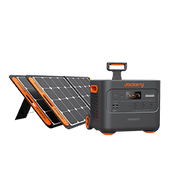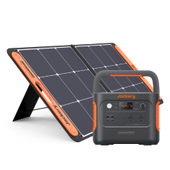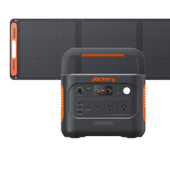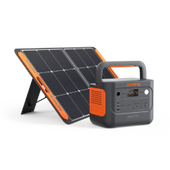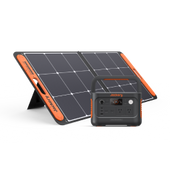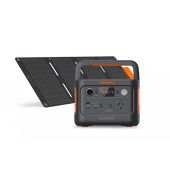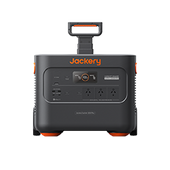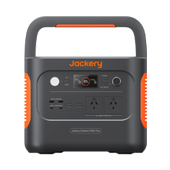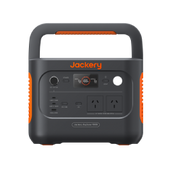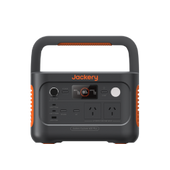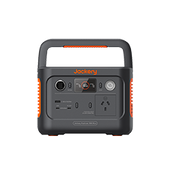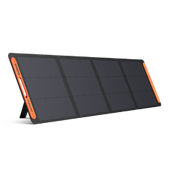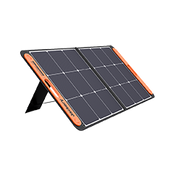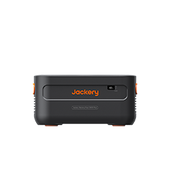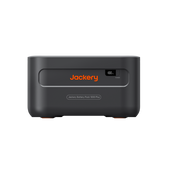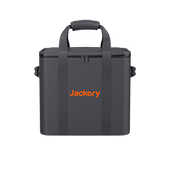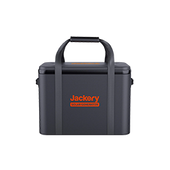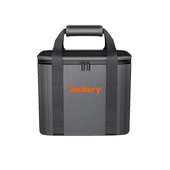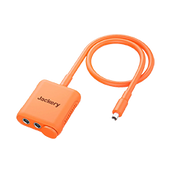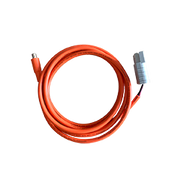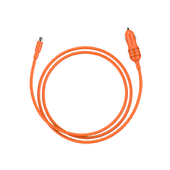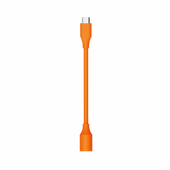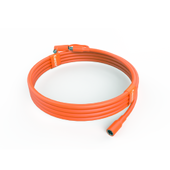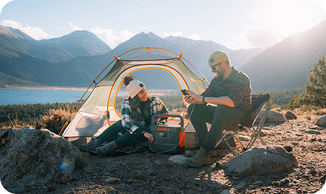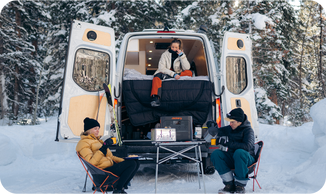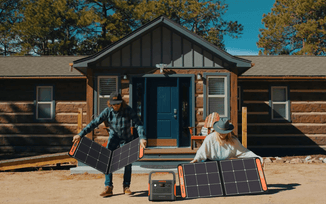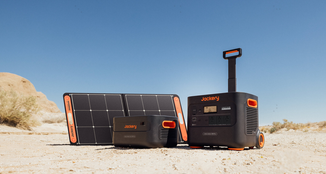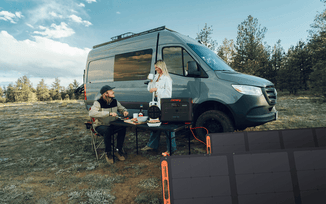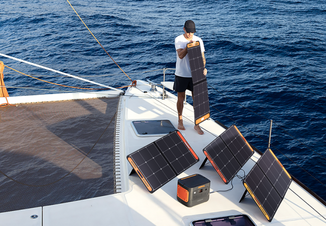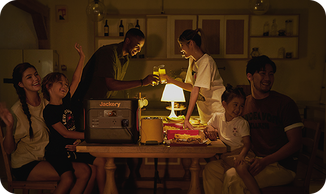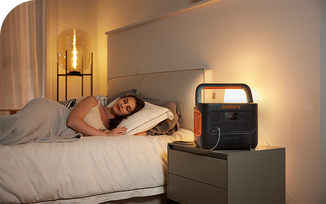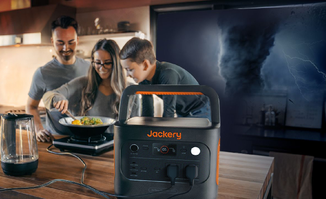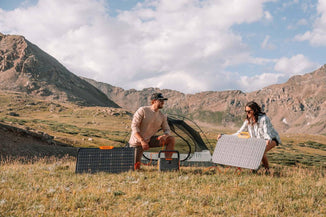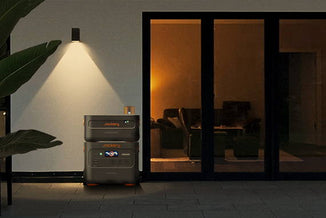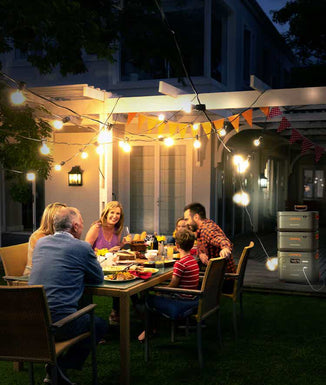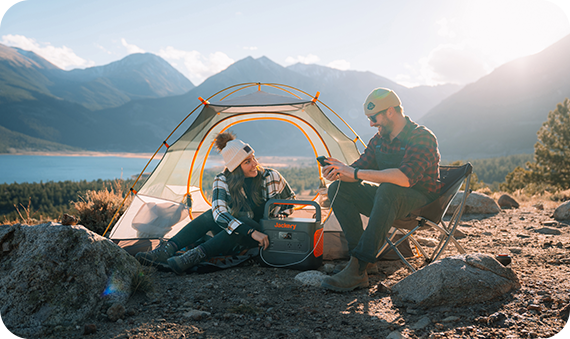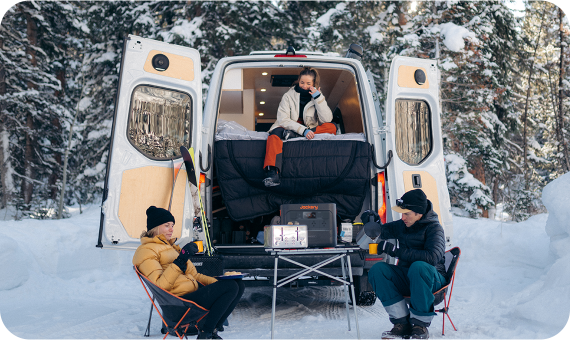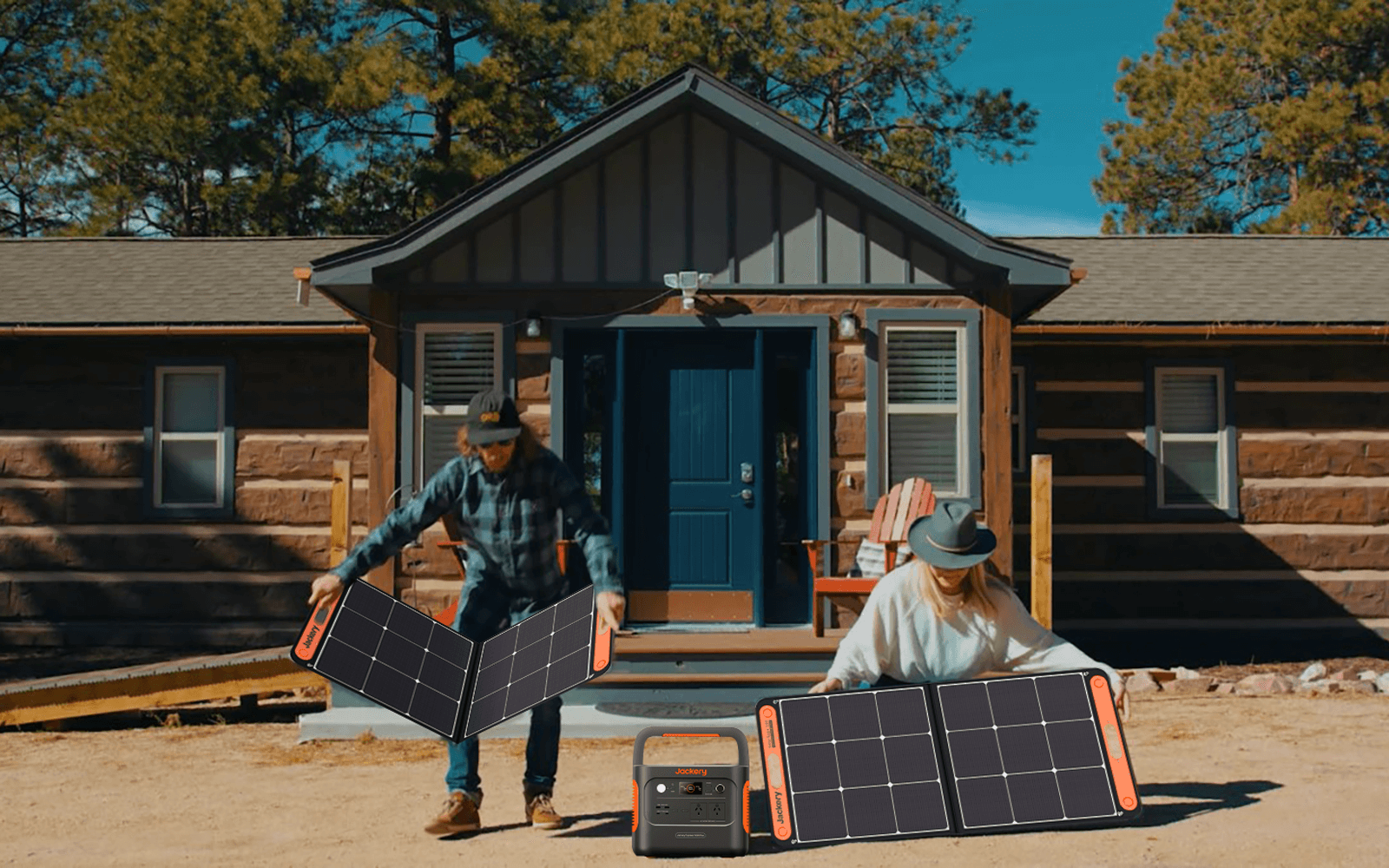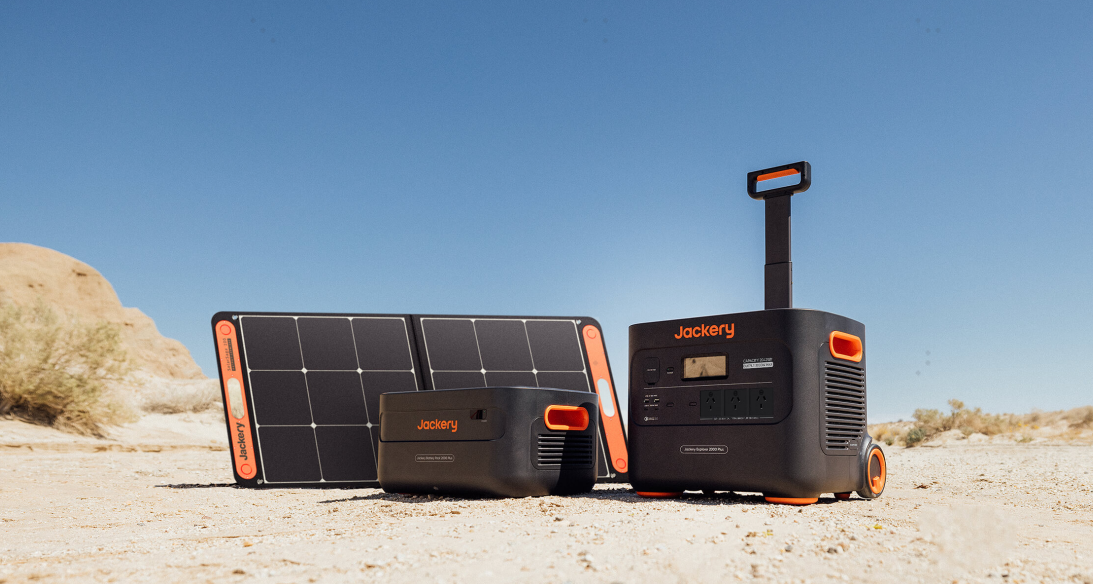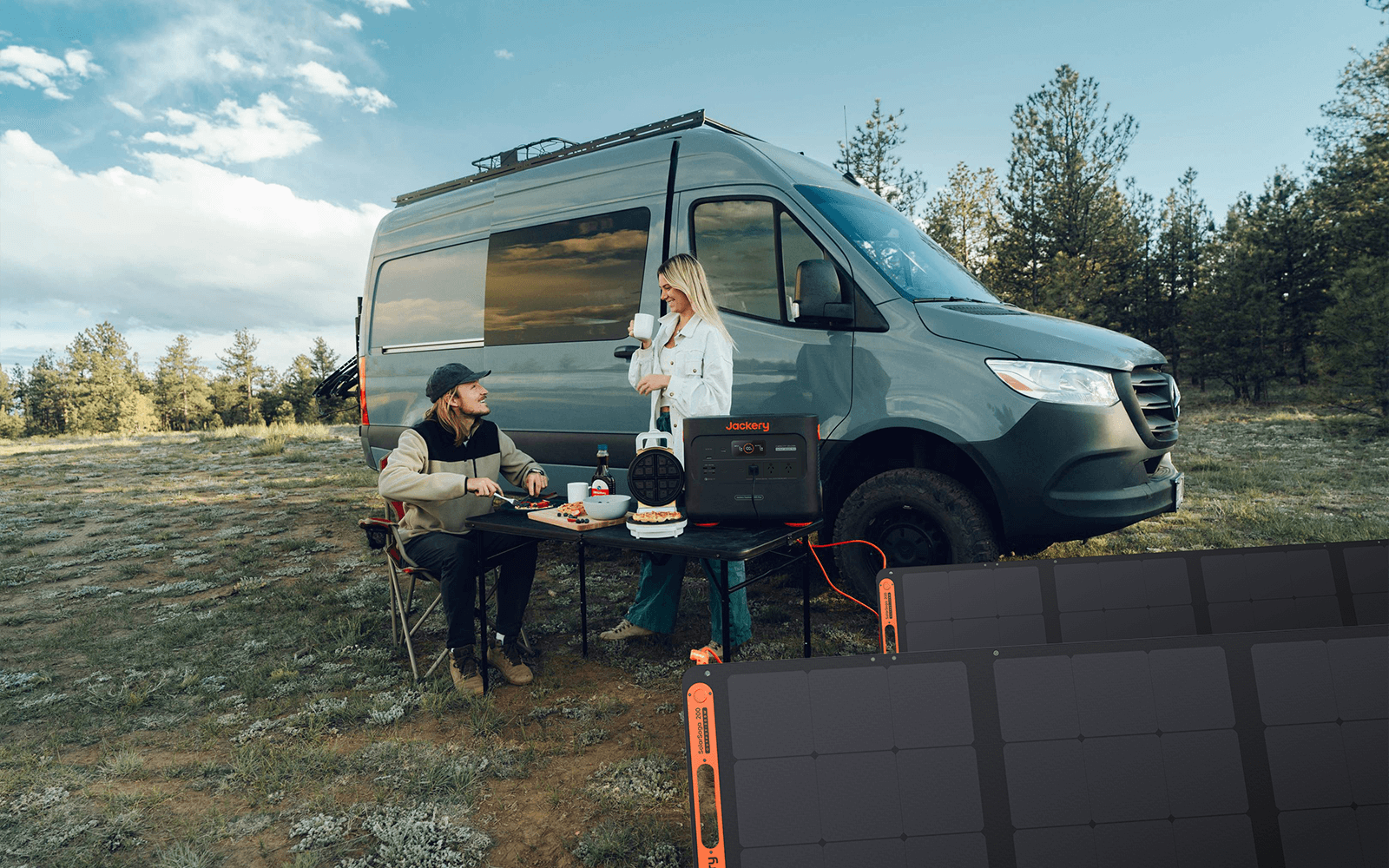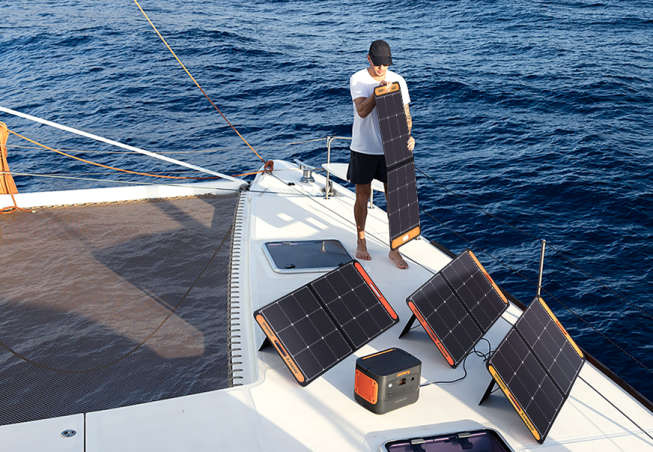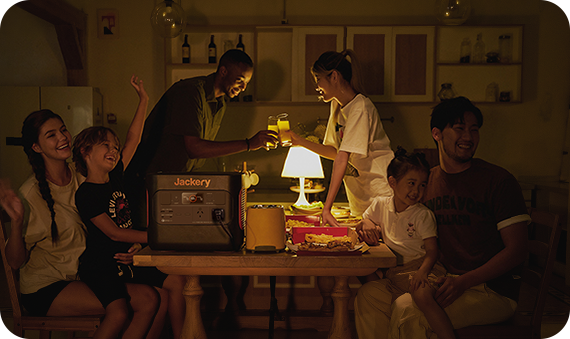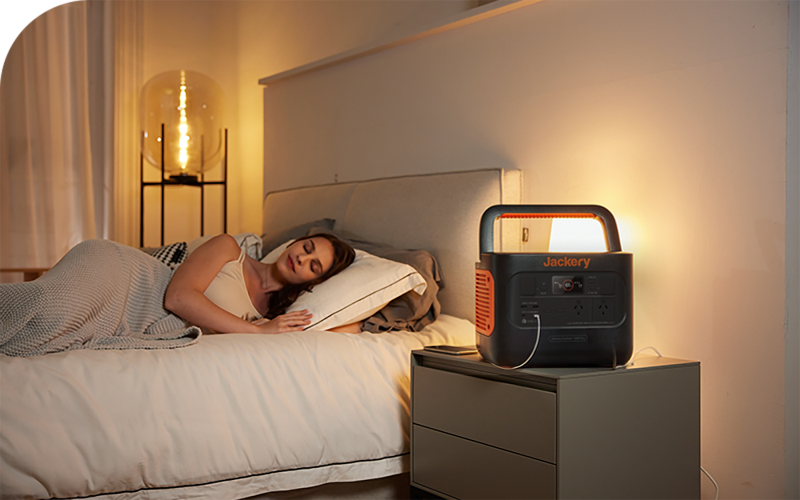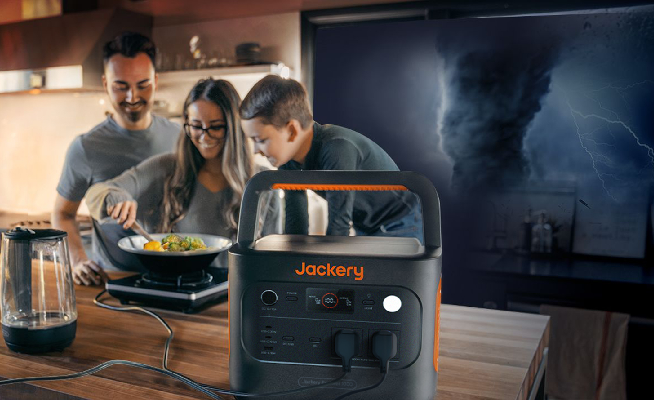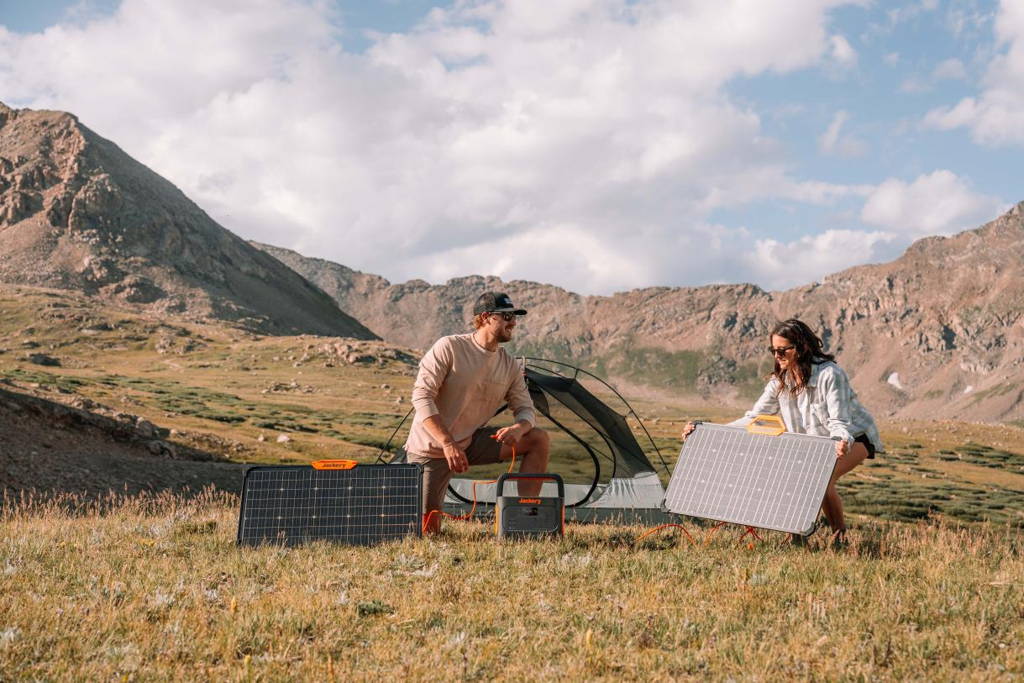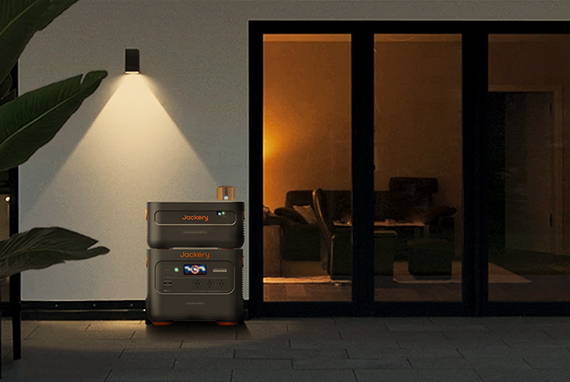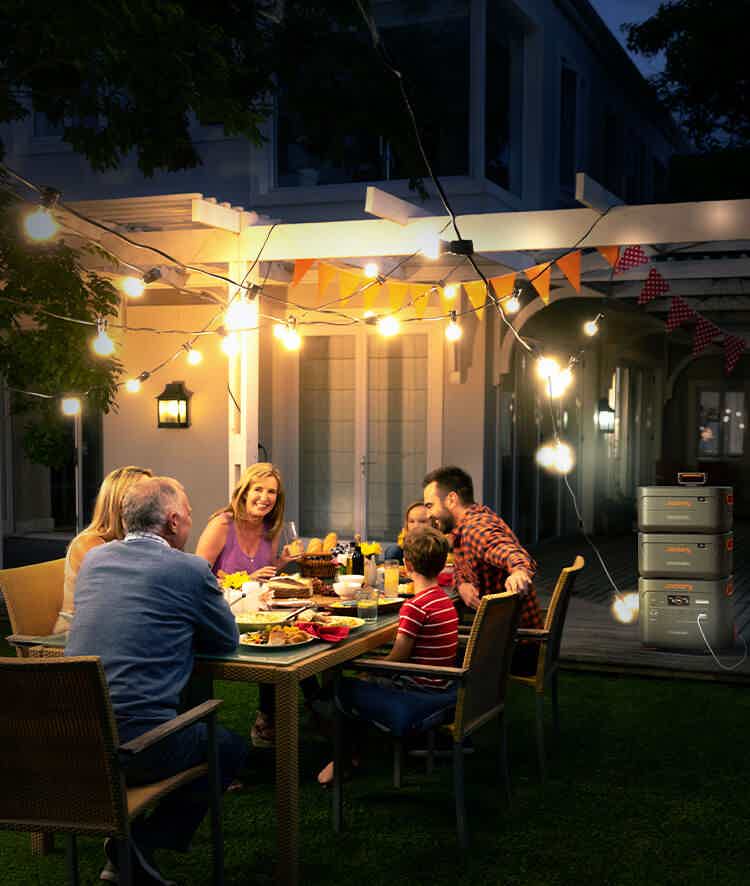4WD Camper 101: How to Choose & Build The Best 4WD Camper
4WD Camper 101: How to Choose & Build The Best 4WD Camper
Australia has terrific beauty, activities, and attractions. The best way to make the most of them is to travel in a camper van. Do you want to escape it all? Why not escape civilization by driving an off-road RV, a vehicle sturdy enough to conquer the route while transporting all the luxuries of home in one rugged package?

The 4WD camper vans, a subclass of this unique group of vehicles, combine the joy of adventure with the assurance that you will not have to rough it no matter how tough the terrain outside gets. Which 4X4 vans and off-road RVs are worth a second look? On this page, you will learn everything there is to know about 4WD campers, including their features and how to choose or build the best one. Furthermore, larger-capacity Jackery Solar Generators are strongly recommended for charging your 4WD accessories and devices using solar energy.
Key Takeaways:
Many of Australia's top destinations necessitate vehicles taking steep, winding roads into rural areas. A 4WD camper is an option to take your next excursion off-road.
When choosing or hiring a 4WD camper to explore Australia, consider some essential features, such as the steel or welds, tire, brake, wiring, plumbing, and ventilation.
There are some tips for choosing a 4WD camper, including your budget, camping style, buy or hire one, safety tips, and 4WD camper facilities (especially electricity).
Jackery Solar Generators combine solar panels with portable power stations to convert sunlight into electricity. We highly recommend Jackery Solar Generator 1000 Pro and 2000 Plus charging camping appliances with higher capacities.
You can build one independently, Except for buying or hiring a 4WD camper. Firstly, you should choose an ideal camper, then select the materials, design interior space, and other considerations.
Why Choose A 4WD Camper to Explore Outback?
A 4WD camper is an option to take your next excursion off-road. Also, a 4WD motorhome allows you to enjoy everything our nation offers.
Easy to Drive: Many of Australia's top destinations necessitate vehicles taking steep, winding roads into rural areas. If you're still getting familiar with driving a large motorhome, the experience might be intimidating and even dangerous. Even going on highways, doing U-turns, backing up, and changing lanes in a large RV takes a lot of practice.
Having nerve-racking situations while driving might ruin the journey. Driving a tiny 4WD camper is much more like driving a standard 4WD. This means you will only have to devote some energy to driving and take advantage of the opportunity to appreciate the scenery.
Easy to Park: Being a foot or two shorter might make parking your 4WD motorhome much easier. No matter where you go, you'll have to park your motorhome for various reasons, including fuelling, eating, driving breaks, campgrounds, and overnight stops. A 4WD camper is unlike an oversized RV; everything is more straightforward when compact. You can load it into your driveway, which a larger vehicle cannot. Sometimes, there are restrictions or insufficient street space to park a large RV in front of your house.
Easy to Get More Places: A smaller 4WD camper allows you to travel to many more destinations than a larger one. A small size makes it easier to navigate rugged terrain. Many national parks and forests need more parking lots and the handful that does fill up rapidly.
Cost-Effective: Fuel consumption is higher with a larger RV, vehicle, or towed caravan. When you're going on significant expeditions, the expense of that fuel adds up rapidly. A tiny 4WD motorhome can significantly improve fuel economy and save you hundreds or thousands of dollars.
What Are The Essential Features of A 4WD Camper?
If you've already begun looking into different camper vans, you'll realize that there are numerous options. As previously said, there are multiple benefits to purchasing a 4WD camper. Let's look at some essential features when choosing or hiring a 4WD camper to explore Australia.

Steel & Welds: If you have any doubts, ask the seller where their steel comes from. If you've worked in fabrication, it's easy to recognize a bad-quality weld. Because the steel and welds hold your trailer together, they must be high quality. The thicker and better-designed the steel, especially the chassis and drawbar, the heavier the camper. Steel will rust if not correctly cared for. The chassis should ideally be hot dip galvanized and the body powder coated. The better the metal finish, the less likely corrosion, chipping, and general damage will be.
Tyre: You want decent quality tires on your 4WD camper, especially if you plan on leaving the bitumen. Mud terrain tires aren't required, but a solid set of all terrains is an excellent place to start. Match the tire size and wheel to your towing vehicle if it is relevant to you. If you get a puncture, you'll have double the spares.
Brake: Electric brakes require installing a brake controller in your car to function. The mechanical variants rely on the hitch compressing when manually activating the brakes. These can be cable or hydraulic, but they are critical for safe towing.
Wiring & Plumbing: Examine the location of the cables, switches, and plumbing. You've got a winner if it's tucked away, well-supported, and protected from damage. If you observe wire running through metal without rubber grommets or waterproof regions without cable glands, you know the finish quality is poor.
Ventilation: Proper ventilation is essential when camping in a hot region. You will need more airflow if your 4WD camper has only a few windows. Look for rooftop camper tents with plenty of windows and durable insect netting to keep the pests out.
How to Choose The Best 4WD Camper?
The most straightforward strategy to identify an ideal camper is to consider what you intend to use it for and ensure you check its box. Only be concerned about what your next-door neighbor or closest friend is doing if they utilize it like you would. Just as you would add additions to a 4WD to make it more comfortable, functional, or reliable, your 4WD camper must first and foremost meet your needs.

Budget
The cost of buying or hiring a camper van can vary significantly based on size, available facilities, and the length and time of year of your journey. Smaller camper vans with fewer frills will often be less expensive than larger ones with full showers, bathrooms, etc. You may also need to consider things like remote location costs. Furthermore, you must pay a one-way fee to pick up your 4WD camper from one site and return it to another.
Try to book as early as possible to get the most terrific deal. With some forethought, you can plan around a bargain or slightly change your dates to find the most excellent price. You get what you pay for, as the adage goes. In comparison, it is simple to set a budget and dismiss any 4WD camper surpassing it. Allowing yourself some leeway can mean the difference between a camper that is fit for purpose and a camper that is perfect for you.
Your Camping Style
After the budget, the second most crucial consideration is your camping style. The majority of visitors to Australia are interested in going off the grid. If you want to go off the main path, consider an off-road 4WD camper. It has all the bells and whistles you'll need when exploring the middle of nowhere.
You can do away with campgrounds thanks to solar-powered panels, massive water tanks, heating systems, a robust and impenetrable exterior, and a gourmet kitchen. Everything you need for a luxurious trip is included, and no preparation is required. Finally, the farther you intend to travel, the longer the vacation, convenience, and comfort will always triumph.
Before purchasing a camper van, ask yourself the following questions:
- How frequently will you travel in your 4WD camper?
- How many people will you bring on your camping trip?
- What kinds of sites will you visit?
- When do you intend to travel?
- What facilities do you require for your camper?
Take Part In The Camper Show
Camper vans can be found all around Australia. The issue is that seeing them takes time, is annoying, and is challenging. Go to a camper van show, where hundreds of camper vans are gathered in one place simultaneously. This way, you can compare them, see how they're all set up, and decide what you like and don't like. Talk to the salespeople, listen to what they say, and you'll be off to a terrific start. Conduct your independent investigation, and only sometimes trust what they say.
Buy or Hire
One of the best aspects of purchasing a 4WD camper is that it retains its value quite well. However, as with anything, they will depreciate with time, and used campers may be a fantastic steal.
Buy New
Buy Second-Hand
Hire
Pros
- Easy to customize
- High performance
- Warranty
- Some cost-effective
- Many types to choose
- Best for any camping
Cons
- Costly
- Hard to choose
- Have risks
- Only for once
Buy New Camper: A new camper can be easily customized to meet your needs. The manufacturer can readily accommodate you if you need a different-sized water tank or hubs, rims, and tires. Of course, you receive a warranty, a gleaming camper, and hopefully years of trouble-free camping.
Second-Hand Camper: It appears that most used campers around ten years old are around half the price of new. The issue with buying used campers is knowing how much the camper trailer is worth and whether you are getting good value for money. We recommend avoiding campsites that have been heavily used. Many folks acquire a camper, decide it's different from what they want, and sell it at a loss. You'd be crazy not to obtain one that's been used several times for several grand cheaper than a new one.
Hire 4WD Camper: You have various options when hiring a 4WD camper in Australia. 4WD campervans are ideal for lone or pair travelers. They usually have sleeping rooms with a double bed and outside cooking amenities. They're an excellent alternative if you plan on doing something manageable regarding 4WD but want the freedom to go off the usual path.
Consider renting a 4WD vehicle with a rooftop tent or an exterior tent if you want a mix of excitement and comfort. These 5-seater 4WDs are ideal for families or groups who wish to travel together. They are versatile and well-suited for off-road travel.
Safety
Any road excursion should always prioritize safety. Here are a few things to keep in mind while you prepare:
- Weather: Before you leave, always check the forecast. Watching for storms, heavy rain, and excessive heat is incredibly crucial. Be careful that certain unmaintained outback roads may become impassable in severe conditions.
- Adequate Supplies: If you're going to the outback, the bush, or a distant location, you should be well prepared. Ensure you have enough food and water, a fully charged phone, and fuel.
- Road Regulations: If you're new to driving in Australia, it's a good idea to familiarise yourself with the driving rules before you hit the road.
- Fire safety: At certain times of year, parts of Australia are prone to bushfires. Before you travel, checking for fire alarms is a good idea. Check your knowledge of fire safety advice and campfire safety rules.
4WD Camper Facilities
When selecting a 4WD camper, you want it to meet as many of your needs as feasible. Don't buy something because it appears entertaining; purchase something because it will do what you want it to do.
Storage Space: One of the primary reasons people purchase a camper is the extra storage and room. You have far more space to pack things, and campers have a lot of areas when they are set up. Consider how much space you have for packing stuff, especially on a family vacation.
Sleeping Arrangement: It will be a deal breaker if your sleeping arrangements need to be corrected. Consider where you and your partner will sleep and any children or pets. Can you climb onto the bed's ladder when you need to use the restroom at night? How long does it take to set up the kids' beds? What kind of space do they have?
Gear Up: Some campers have enough space to transport everything from several gas bottles and jerry cans to portable toilets, fridges, generators, a kayak, and all your food without a hitch. However, many may need more space, so consider what you want to bring. If you intend to transport fuel in jerry cans, ensure it has a facility. Many campers need help putting in a refrigerator.
4WD Camper Essentials
Fridge
Cooler
Batteries
Water Tank
Jerry Cans
Gas Tank
Fishing Equipment
First Aid Kit
Portable Toilet
Portable Shower
Hot Water Unit
Clothing System
Camping Tent
Foods
Jackery Solar Generator
Electricity: Today's camper electrics range from moderate to wild, with some having thousands of dollars invested in them. Most 4WD campers will include at least one battery, a couple of Anderson and cigarette lighter outlets, and a cable. Consider whether the battery size is adequate to power your electrics. How will you charge the battery - solar or gas? Is there enough illumination to stroll around the camper at night, both inside and outside?

Jackery Solar Generator combines folding solar panels with a portable power station to turn sunlight into electricity, allowing you to power up your camping appliances and offer more electricity as needed. The Jackery Solar Panels can be placed anywhere, and solar charging is simple.
Jackery Solar Generators for 4WD Campers


How to Build Your 4WD Camper
Step 1: Choose An Ideal Camper
Step 2: Select The Materials
Step 3: Design The Interior Space
Step 4: Other Considerations
Final Thoughts
Best-selling Jackery Solar Generator
PAGE CONTENTS
New Arrival
Hurry up! Sale ends once the timer hits zero

